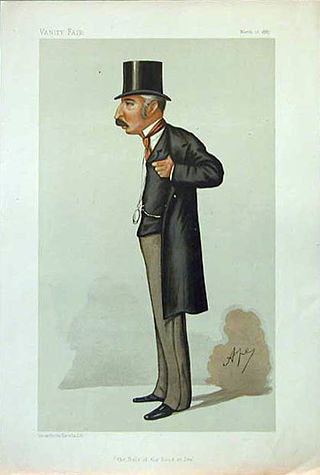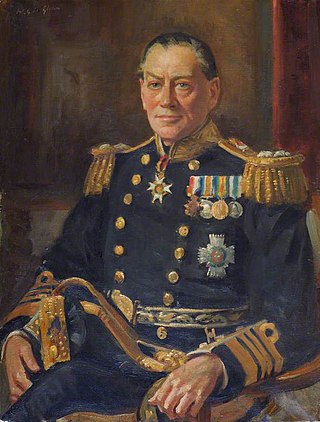
John Brewster Hattendorf, D.Phil., D.Litt., L.H.D., FRHistS, FSNR, is an American naval historian. He is the author, co-author, editor, or co-editor of more than fifty books, mainly on British and American maritime history and naval warfare. In 2005, the U.S. Naval Institute Proceedings described him as "one of the most widely known and well-respected naval historians in the world." In reference to his work on the history of naval strategy, an academic in Britain termed him the "doyen of US naval educators." A Dutch scholar went further to say that Hattendorf "may rightly be called one of the most influential maritime historians in the world." From 1984 to 2016, he was the Ernest J. King Professor of Maritime History at the United States Naval War College in Newport, Rhode Island. He has called maritime history "a subject that touches on both the greatest moments of the human spirit as well as on the worst, including war." In 2011, the Naval War College announced the establishment of the Hattendorf Prize for Distinguished Original Research in Maritime History, named for him. The 2014 Oxford Naval Conference - "Strategy and the Sea" - celebrated his distinguished career on April 10–12, 2014. The proceedings of the conference were published as a festschrift. In March 2016, Hattendorf received the higher doctorate of Doctor of Letters (D.Litt.) from the University of Oxford. Among the few Americans to have received such designation, Hattendorf remained actively engaged on the Naval War College campus after his formal retirement in 2016.
Sir Julian Stafford Corbett was a prominent British naval historian and geostrategist of the late 19th and early 20th centuries, whose works helped shape the Royal Navy's reforms of that era. One of his most famous works is Some Principles of Maritime Strategy, which remains a classic among students of naval warfare. Corbett was a good friend and ally of naval reformer Admiral John "Jacky" Fisher, the First Sea Lord. He was chosen to write the official history of British Naval operations during World War I.

Sir John Charles Ready Colomb, was a British naval strategist and politician.
Naval strategy is the planning and conduct of war at sea, the naval equivalent of military strategy on land.

Nicholas Andrew Martin Rodger FSA FRHistS FBA is a historian of the Royal Navy and senior research fellow of All Souls College, Oxford.

Andrew Lambert is a British naval historian, who since 2001 has been the Laughton Professor of Naval History in the Department of War Studies, King's College London.

Geoffrey Till is a British naval historian and emeritus Professor of Maritime Studies in the Defence Studies Department of King's College London. He is the Director of the Corbett Centre for Maritime Policy Studies.

Admiral Sir Herbert William Richmond, was a prominent Royal Navy officer, described as "perhaps the most brilliant naval officer of his generation." He was also a top naval historian, known as the "British Mahan", the leader of the British Royal Navy's intellectual revolution that stressed continuing education especially in naval history as essential to the formation of naval strategy. After serving as a "gadfly" to the British Admiralty, his constructive criticisms causing him to be "denied the role in the formation of policy and the reformations of naval education which his talents warranted", he served as Vere Harmsworth Professor of Imperial and Naval History at Cambridge University from 1934 to 1936, and Master of Downing College, Cambridge from 1934 to 1946.
Sir John Knox Laughton was a British naval historian and arguably the first to delineate the importance of the subject of Naval history as an independent field of study. Beginning his working life as a mathematically trained civilian instructor for the Royal Navy, he later became Professor of Modern History at King's College London and a co-founder of the Navy Records Society. A prolific writer of lives, he penned the biographies of more than 900 naval personalities for the Dictionary of National Biography.
The Julian Corbett Prize in Modern Naval History was established in 1924 by Mr. H. E. Corbett in memory of his brother, the great naval historian Sir Julian Corbett (1854–1922). First awarded in 1926, the prize has been offered annually by the University of London for a piece of original research in the field of naval history.

The Navy Records Society was established in 1893 as a scholarly text publication society to publish historical documents relating to the history of the Royal Navy. Professor Sir John Knox Laughton and Admiral Sir Cyprian Bridge were the key leaders who organized the society, basing it on the model of earlier organisations such as the Hakluyt Society and the Camden Society. The American naval historian, Rear Admiral Alfred Thayer Mahan, was one of the first overseas members to join the Navy Records Society.
Rear Admiral James Vincent Purcell Goldrick, was a naval historian, analyst of contemporary naval and maritime affairs, and a senior officer of the Royal Australian Navy (RAN). Following his retirement from the RAN, Goldrick was a fellow at the Sea Power Centre – Australia and an adjunct professor in the School of Humanities and Social Sciences in the University of New South Wales at the Australian Defence Force Academy. He was also a member of the Naval Studies Group at the Australian Centre for the Study of Armed Conflict and Society, an adjunct professor in the Strategic and Defence Studies Centre of the Australian National University and a professorial fellow of the Australian National Centre for Ocean Resources and Security at the University of Wollongong. He was a visiting fellow at All Souls College, University of Oxford in the first half of 2015, and a non-resident Fellow of the Lowy Institute from 2013 to 2018.
Daniel Albert Baugh is "seen as the definitive historian of [British] naval administration." Baugh has defined his own contribution in explaining "My research field is mainly England, 1660–1840. By studying administration chiefly in terms of administrative problems, I hope to improve our understanding of both the nature of society and the development of government.". After 1982, he focused his attention on maritime, naval and geopolitical history.
Eric Grove was a British naval historian and defence analyst.
The Corbett Centre for Maritime Policy Studies is a policy think-tank which conducts research and teaching on issues related to maritime security.
Vice Admiral George Murray was a Royal Navy officer and politician. He was the third son of the Jacobite general Lord George Murray.
Greg Kennedy is a Canadian military historian and author who currently teaches Strategic Foreign Policy at King's College London. He is also the 2002 winner of the Theodore and Franklin D. Roosevelt Prize in Naval History.
The Laughton Unit [Laughton Naval History Unit] is a research unit which conducts research and teaching on naval history, theory and maritime strategy.
James King King was a British Conservative Party politician.
Christopher Thomas Atkinson was the preeminent tutor for British military history at the University of Oxford in the first half of the twentieth century.






